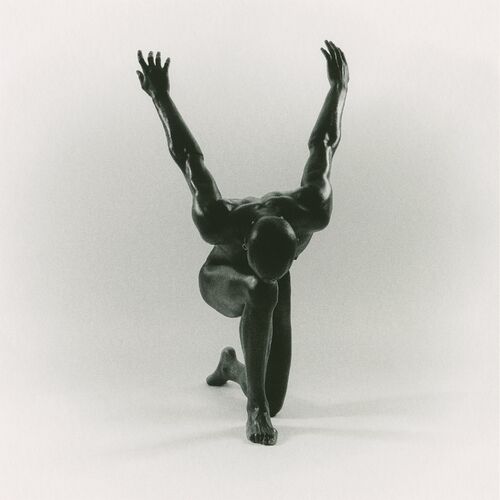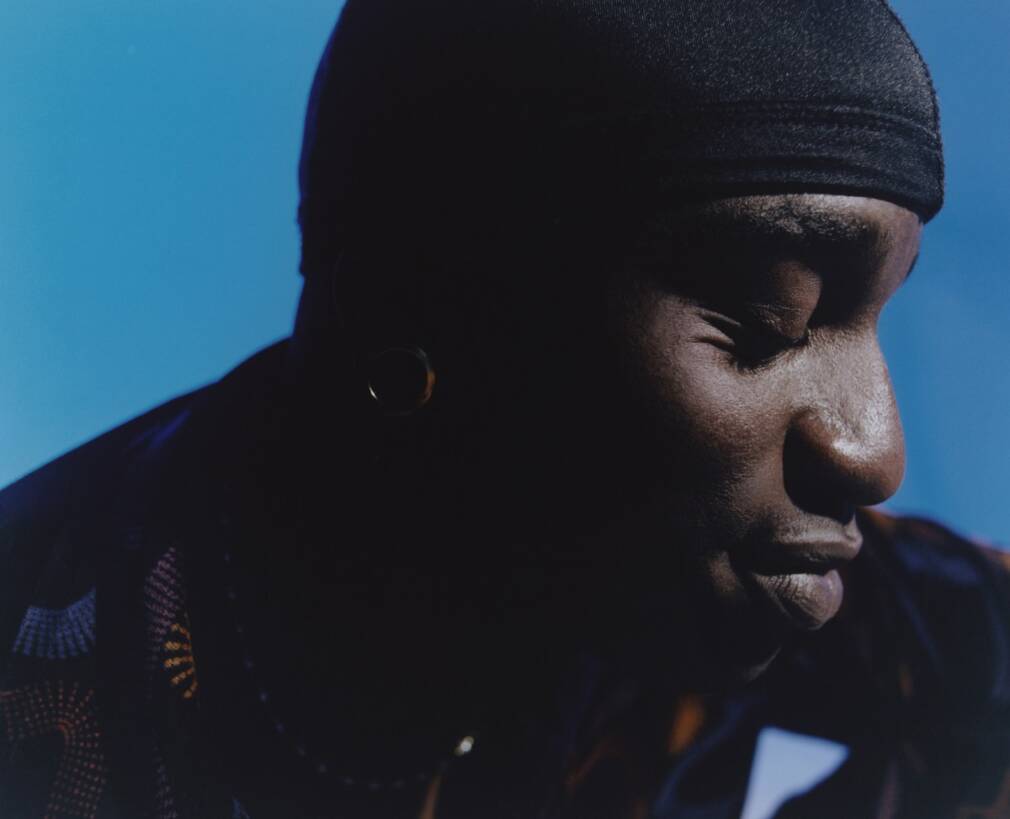In the popular TV series, SWARM, Dominique Fishback’s character, Dre, is asked whether or not she believes in God. In return, she states that ”God is just an echo.”
In an era that places so much significance on the omnipresence of technology to help us define ourselves as a species, the idea of what God is or isn’t seems to be brought up less and less often. For many, the standards society holds itself to is often defined by what the majority “likes” most; the way we navigate our relationships seem to become more and more self-serving and our moral failings become fodder for Netflix specials rather than deep reflection on how far we’ve come – and how far some are willing to go bring themselves power.
For Yannick Ilunga, also known as Petite Noir, God is everything.
The last few years since his 2015 La Vie Est Belle (Life is Beautiful), music has taken Ilunga to Paris, London, Johannesburg, Cape Town and Los Angeles, in search of a new way of seeing himself and his highest power. Already growing up with a prismatic identity, Yannick was born in Belgium to Congolese parents and raised in South Africa, where his musical identity took shape. In a unique and brazen string of projects and collaborative works that assess darkness in the physical and emotional sense, Petite Noir has carved out a singular voice that is full-bodied and proud as well as sonically and visually lush. Today, in Mother/Father, he explores his spirit, the nature of God, his relationships and his hopes to, in turn, explore his own true nature.
Since the pandemic began in 2020, it seems that there’s been a shift in how Africans see themselves and are being seen. Have you felt that change? What is your experience of being the African man that you are and how people viewed you?
I guess there’s been a sort of African renaissance happening. For an artist like me now is the best time to be yourself, and I definitely feel that when I was just starting out it wasn’t necessarily the best time to be an artist like me. It’s been amazing to watch artists like Burna Boy and Steve Lacy pierce through the market, and I think right now as a human race we are starting to accept a bit more; we’re moving into a paradigm where it’s ok… things aren’t as ruled by race and where you’re from, but at the same time for example the media still use these types of things for control.
I definitely feel this “control” happening in Cape Town, where being the kind of African that straddles multiple cultures puts you in a weird place where you don’t quite fit in anywhere, and you exist on a different plane to everyone else. How would you say you’ve evolved since calling Cape Town home?
Oh 100%! I think South Africa as a whole to be honest with you is so complex when it comes to their idea or the way that they view race. I feel more free out here, and I feel that as much as the government is racist or xenophobic, I feel that you have to go a little higher up into society to feel those types of things. I will say that it is extremely difficult to be your full self [in Cape Town], and it is even embarrassing to have to say as a black person or a person of color, you always feel that you have to refer to yourself as being secondary… It was extremely difficult in Cape Town to not live with the kind of delusions that get placed on people who push whatever agendas they want to push. I don’t think I could live in a place like Cape Town or South Africa just because it makes me feel limited in life. You can’t do anything freely, you can’t be in space and places and be your full self.
How do you feel that God has shown its creativity in you, and your “full self”?
I’ve made music and art, which is the closest thing to actually creating something. The ability to create has allowed me to live, to travel, to break free, to gain respect, to become everything I wanted to become, all through putting my energy into creating from an honest point of view. It’s a very high frequency, especially being able to create from your honest, free self – and I’m not talking about being a creative director, that’s not necessarily free. I mean starting with a blank canvas with no expectations. That’s when you’re closest to God.
Let’s talk a little bit about your idea of God and the way it’s shown up in the album.
God is everything. Both male and female, both X and Y, feminine and masculine. I feel like the way that religion has forced this idea of God into us is wrong, because it backs us against a wall. “If you don’t believe this certain thing, then you’re not a real believer.” I think there’s a lot of controversy around God and religion and how it was used in colonial times; used in families to discipline children. There are amazing things in the bible but the problem comes when it comes to the idea of God, what God is, who God is, what role Jesus plays in this human experience of God. For me personally, God is everything; the space, the energy, everything that makes everything work, everything move. In nature I’d say there’s feminine and masculine and for me the combination of those two things create a new being and in that, there’s God.
So how do you express this conversation with God in the album? We see some obvious hints in tracks like the angel number “777”and “Finding Paradise” for example…
Yeah, we start with “777”. If you listen to all my intros, they all represent this massive sense of release. On the first album I had similar types of drumming, but it wasn’t that heavy. It had sounds of souls leaving a body and so it’s the ultimate release, but with this “777”, something leaving the body, leaving me. Basically I’m burning to be free.
With Sampa, we’re friends and this one came about really naturally. What I like about her is that she’s definitely “noirwave” in the sense that she doesn’t really fit in anywhere; she’s from the continent, just an African person on a journey through life which I relate to.
For me, paradise is a state of mind, it’s a state of being. Reaching a point in your life where… Well, we go between paradise and hell all the time. When you’re going through tough times we’re looking for a piece of paradise. To find paradise I pray in the morning, I’m constantly in conversation with God, which is my daily ritual to keep myself together.
Do you ever feel like he’s not answering or isn’t there?
I always do. We are constantly fighting. It sometimes feels like God isn’t there but I know deep down he is. God is always good, even in tough times, and that’s what I hold on to. I think God plays a massive role in making you realize your purpose. Throughout life there are lessons for everyone and you have to be sure about the fact that you’re on a journey in life and you need to have an end-goal in mind. There’s no one else on this earth that will make you, you. You have everything inside you to create your own life and the moment you become co-dependent on something or someone, you start to lose your essence.
What do you imagine that God is saying back to you now that you’ve been able to bring this album together, and how do you imagine the echo of your work coming back to you?
To be honest I really don’t know. I think people will like it and I can only hope they do. I hope it’ll become one of the best albums I’ve put out there. I just want people to listen to it and be free, and feel better about who they are. Because if you are able to listen and wrap your head around this album, then you’re a free person; if you’re a fan it means you’re free.
Pre-order Petite Noir’s MotherFather, out April 14th.





